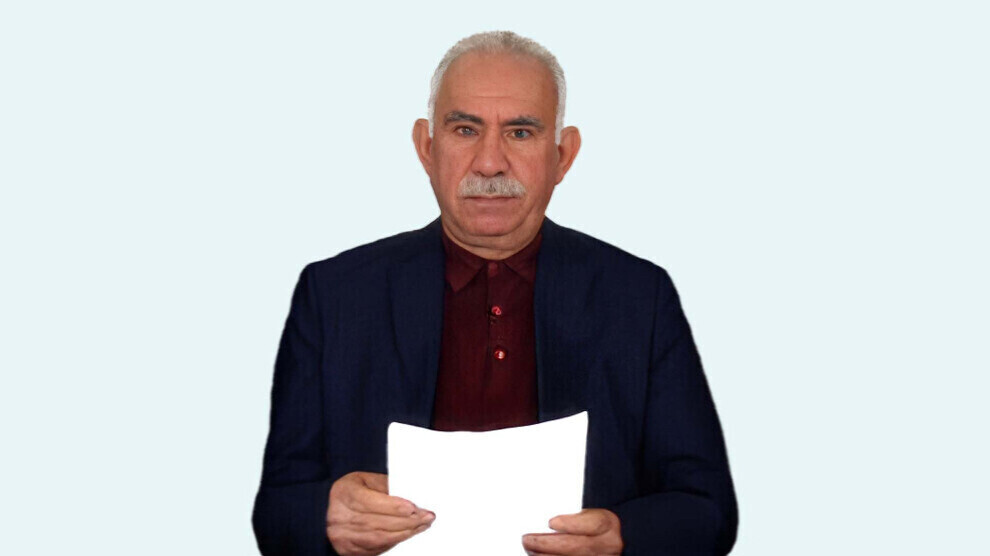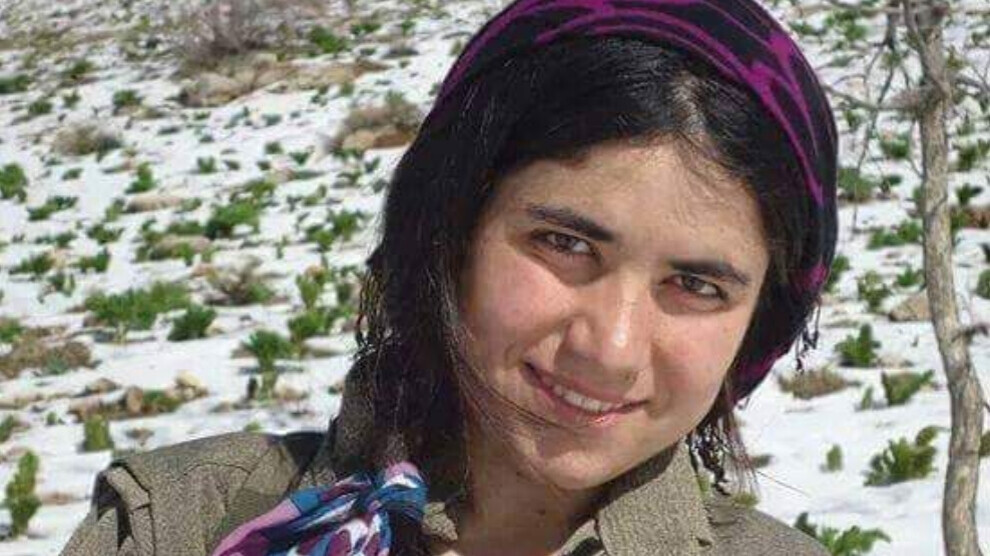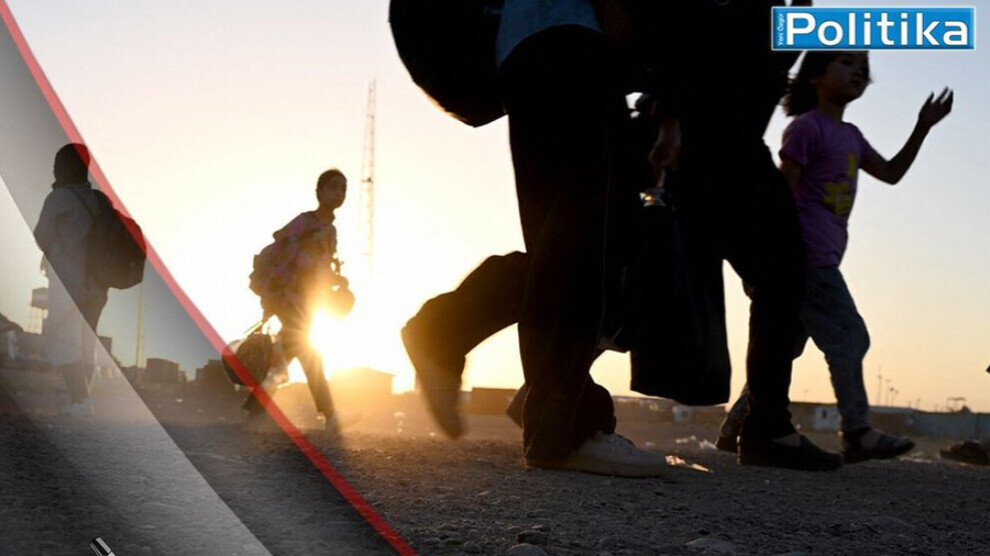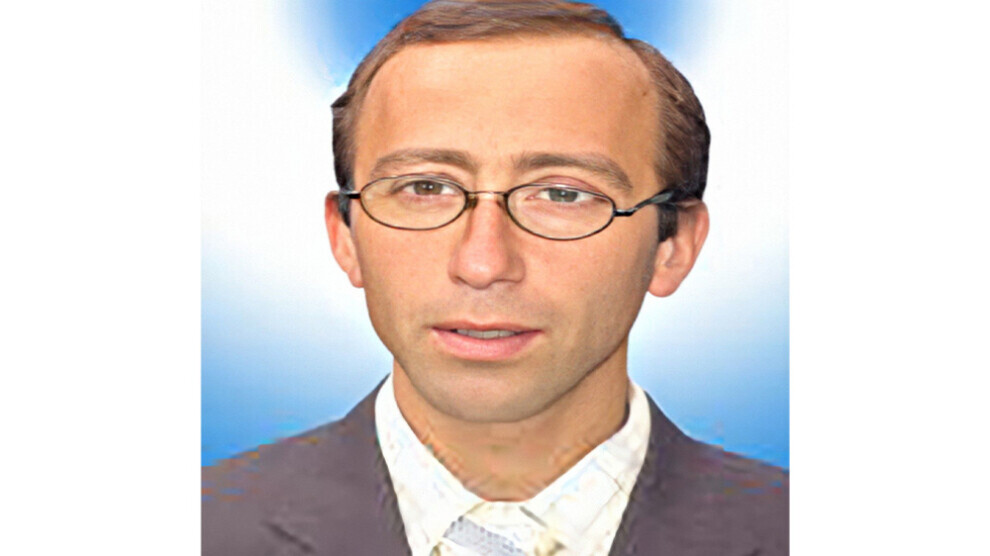FEATURES
Latest News
-
KCK: The PKK promoted great achievements in all four parts of Kurdistan
The co-chairs of the executive council of the KCK (Association of Kurdistan Societies), Besê Hozat and Cemil Bayik, speak about the social and economic achievements in Rojava and those gained by the PKK for the people of Kurdistan. -
Dr Miley: Ocalan's freedom crucial for peaceful resolution to conflict
Dr Thomas Jeffrey Miley is interviewed by journalist Erem Kansoy. Dr Miley is a Lecturer of Political Sociology at the University of Cambridge. -
Survivor of the KDP attack, guerrilla Haki Zilan tells his experience
Haki Zilan, one of the seven guerrillas who survived the ambush organized by the KDP against a group of guerrillas at the end of August, talked about his fallen friends. -
KCK: Municipal economy as a holistic approach
The co-chairs of the executive council of the KCK (Association of Kurdistan Societies) answer questions about the economic model. -
Aldar Xelîl: Turkish invasion cannot continue
"This fragmentation is not for the benefit of the Syrian peoples. Let's recognize each other and everyone's rights. Let's create, protect and embrace a democratic-united Syria together." -
Our goal is a free, democratic and independent Kurdistan, not a nation-state, say Hozat and Bayik
In an extensive interview, Besê Hozat and Cemil Bayik, co-chairs of the KCK, talked about what true independence means for Kurdistan. -
Guerrilla Haki Zilan who survived the KDP attack in Xelifan: "They wanted to kill us all"
Guerrilla fighter Haki Zilan, who survived the KDP's massacre of a guerrilla unit in the region of Xelîfan, said, "The goal of the attack was to take no prisoners. It was about killing us." -
Turkish army continues to use chemical weapons against guerrillas
The Turkish army continues to use chemical weapons against the guerrillas, committing war crimes. Special technology is used to channel poison gas into the guerrillas' war tunnels. -
Systematic violence against the municipality of Pantelhó in Chiapas
The EZLN's Clandestine Committee had already warned a few days ago that Chiapas was on the brink of civil war. -
Time to put Turkish officials on trial for their crimes in Kurdistan, says KNK
The Kurdistan National Congress (KNK) has published a report titled ‘Time to Put Turkish Officials on Trial for Their Crimes in Kurdistan’. -
Turkish assassination squad is based in France and directly linked to Erdogan
The assassination squad that planned to assassinate Kurdish officials in Belgium has been exposed and an unprecedented case has been opened. Identities of the squad members reveal that they were based in France and had direct connections with Ankara. -
Court accepts case against Turkish assassination squad in Belgium
In Belgium, an investigation into the assassination attempt against prominent Kurdish politicians in 2017 was completed and a court accepted the case. The first hearing will be held on October 1. -
The story of how the AKP rules and destroys Edremit
Edremit, the district of Van, known for its historical and natural beauties, has recently become a center of income for AKP members, trustees and village guards. -
Lawyer Melanie Gingell talks about delisting the PKK from terrorist organizasations in the UK
Melanie Gingell, human rights lawyer and member of the steering committee of Peace in Kurdistan and Women's Alliance was interviewed by journalist Erem Kansoy. -
Fîraz Dağ school for children in London opens second year of lessons
The Fîraz Dağ school for children in London, named after the nom de Guerre of the Kurdish filmmaker Mehmet Aksoy, has opened its new year of education. 40 pupils receive tutoring in five subjects. -
Curtailment of women's and labor rights destroys people's lives in Turkey, says KESK trade unionist
Gülistan Atasoy, Women's Secretary of the KESK Trade Union, wrote a long article for the Kurdistan Report. -
Fractured History, Colorful Lives - A review of the graphic novel 'Turkish Kaleidoscope'
Reimar Heider reviews the graphic novel 'Turkish Kaleidoscope: Fractured Lives in a Time of Violence'. -
KCK sends a letter exposing Turkey's use of chemical weapons to international institutions
The KCK Foreign Relations Committee sent a letter to the representatives of Western countries in Hewlêr, the UN Secretary General, the Arab League and the Organization for the Prohibition of Chemical Weapons (OPCW) about Turkey's use of chemical weapons. -
All set for the annual Kurdish Culture Festival in the Netherlands
The Confederation of the Kurdistan Societies in Germany (KON-MED) invited the Kurds and their friends to the International Kurdish Culture Festival to be held in the Netherlands on 25 September. -
PKK’s Şerik: The ‘Time for Freedom’ campaign should be carried to Turkey
PKK Central Committee member Cemal Şerik stressed the urgent need to carry the ‘Time for Freedom’ campaign to Turkish society, saying that the situation resembles the time before the military coup in 1980. -
Democratic Confederalism and the Global Trade Union Movement – An Interview with Simon Dubbins
Simon Dubbins, Director of International for Unite the Union, spoke about Democratic Confederalism and the Global Trade Union Movement. -
Memorial for David Graeber to be held tomorrow
On Wednesday 22, the 1st year memorial of David Graeber will be held in Madrid and on zoom. -
What was the goal of the attacks in Sulaymaniyah?
After the attacks in Sulaymaniyah, the goals and those behind them must be named in order to prevent further attacks. If this fails to happen, these attacks will become a concept with which the occupation of Kurdistan will reach a new level. -
HPG Press Center Spokesman: The Turkish state conceals its losses
In an interview with ANF, HPG press spokesman Serdar Yektaş explains the current situation in the guerrilla areas and discusses the methods of Turkish reporting. -
'We may lack resources but not determination'
“We are going through a heavy period, we had losses in this process, but we are in a war environment, we will not give up. This is the culture in the PKK: the battle of wills begins when there is no opportunity.”




